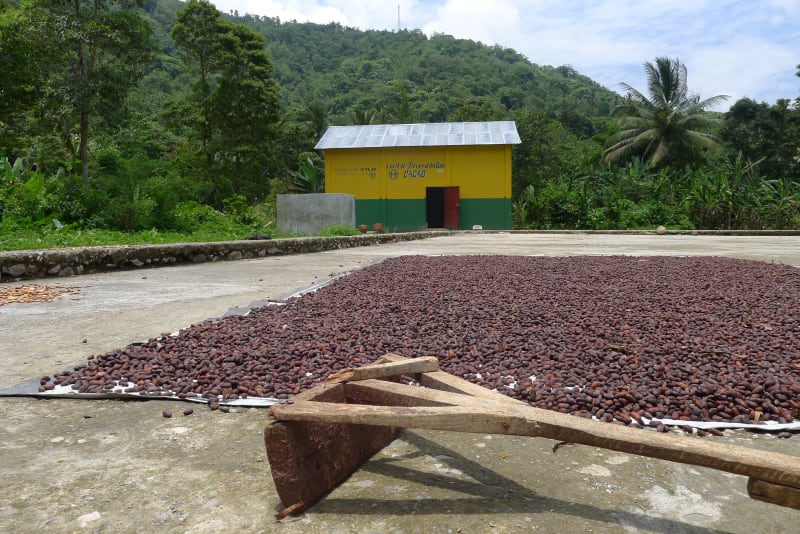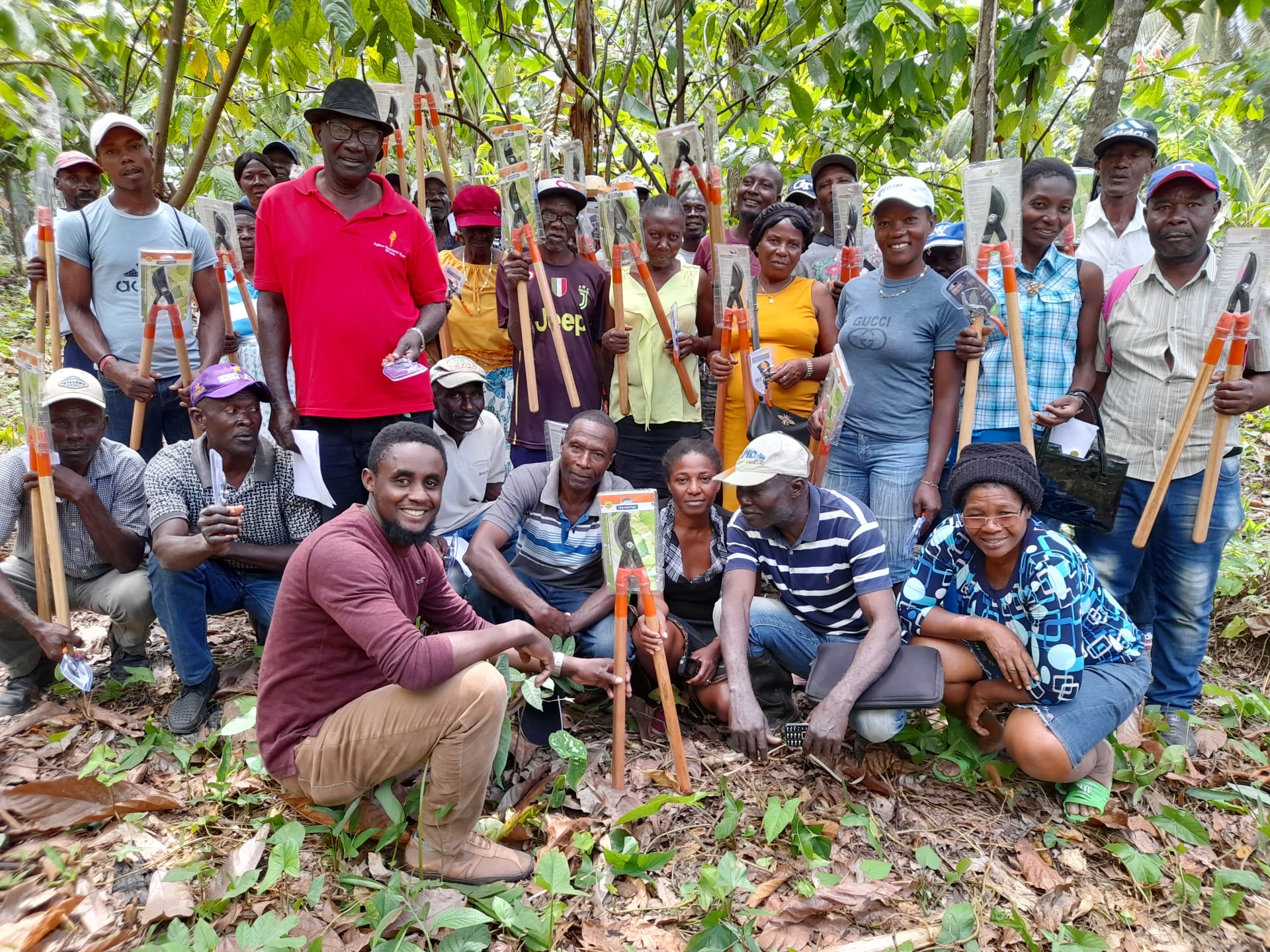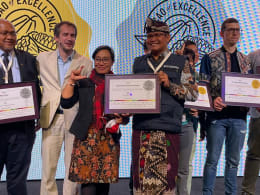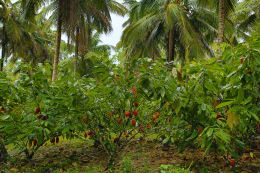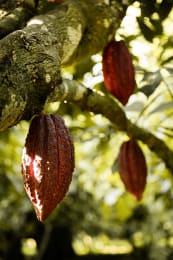Promoting agroforestry in Haiti
In 2017, together with its partner Feccano (Fédération des Coopératives Cacaoyères du Nord) and French international NGO Agronomes et Vétérinaires Sans Frontières (www.avsf.org), Valrhona decided to launch a project to regenerate mixed-crop gardens (“jardins créoles" or agricultural plots) for the period up to 2020.
Agroecological cocoa-growing in Haiti
This project emerged out of our work to identify priority actions that would bolster Feccano and its member-producers’ sustainability.
This project also aims to demonstrate that garden regeneration (which includes tree pruning, grafting, replanting, new food crops, composting, nurseries and so on) is one of the solutions that can be implemented on a local, regional and national level to revitalize and sustain traditional cocoa-based agroforestry systems in Haiti. The cocoa trees in the mixed-crop gardens are aging and this has an impact on their productivity - and families’ incomes with it.
This multi-disciplinary approach intends to intensify ecological diversity and will, of course, include cocoa, as well as other crops such as fruit (mango, avocado, breadfruit and so on) or vegetables (taro, yams, cassava and more) which contribute to families’ food security!
A new three-year plan for the agroforestry project
Buoyed by the results from action we had taken together over the previous three years (2019/2020/2021), in 2022 Valrhona and its Haitian partner Feccano (or the Federation of Northern Cocoa Cooperatives) decided to relaunch a new three-year plan running up to 2024, together with the French NGO AVSF (Agronomes et Vétérinaires Sans Frontières).
Regenerating partner-producers’ “creole” mixed-crop gardens so that we can demonstrate that profitable but environmentally-friendly cocoa farming is possible remains our ambition. The project also aims to streamline these approaches and promote them on a national scale, so that as many families as possible can do the same in their plots in Haiti.
89 new producers have agreed to participate in this project, which means we have the potential to regenerate 40 additional hectares of land between now and 2024. This is in addition to the 12 hectares of plots regenerated by 31 producers in 2022, work which has entailed pruning cacao trees, planting new trees, introducing food crops and composting.
Plots involved in the project in previous years continue to produce cocoa harvests that are more than 50% higher compared with the year the project began.
Results at the end of 2022
- 6,000 cacao plants have been distributed and planted
- 1,650 trees have been distributed (cashew, citrus and so on)
- More than 4,000 food crop plants have been distributed (pineapple, taro, ginger, yams, etc.)
- More than 24m3 of compost has been distributed
- Over 157 pieces of equipment have been distributed (pruning shears, picks, machetes, etc.)

